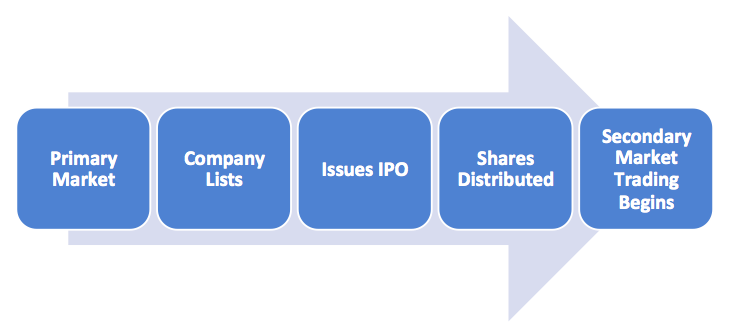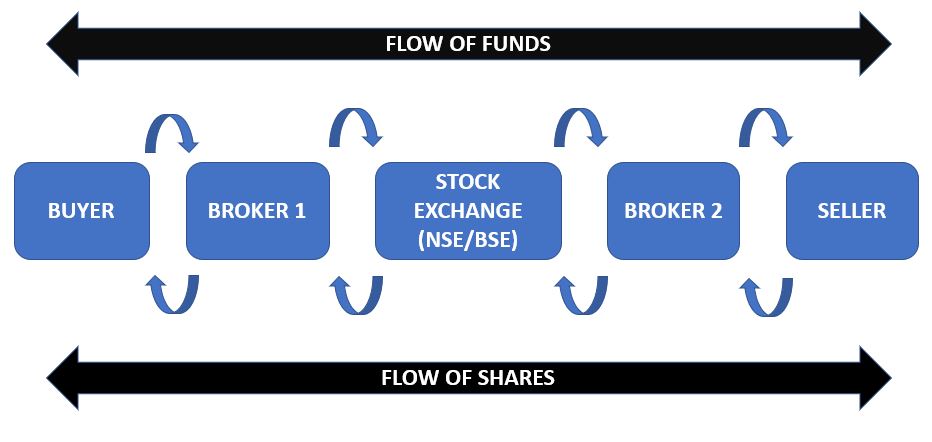When it comes to building wealth, investing in the right avenues is key. The stock market is one of the most popular options, offering the potential for high returns over time. However, to succeed, it’s important to understand how the stock market works, especially in India.
Key Participants in the Indian Stock Market
The stock market functions as a marketplace where investors can trade shares, bonds, and derivatives. Here’s an overview of the key players involved:
1. Securities Exchange Board of India (SEBI)

SEBI is the primary regulatory authority for India’s stock markets. It ensures that the stock market operates transparently, protecting the interests of all participants and ensuring that no party gains an unfair advantage. SEBI’s regulations help maintain investor confidence by promoting fair practices in trading and investing.
2. Stock Exchanges

Stock exchanges are platforms where investors buy and sell securities. In India, the two major stock exchanges are:
- Bombay Stock Exchange (BSE): Represented by its index, Sensex.
- National Stock Exchange (NSE): Represented by its index, Nifty.
These exchanges enable companies to raise funds and provide a trading platform for investors.
3. Stockbrokers and Brokerage Firms
Stockbrokers act as intermediaries, executing buy and sell orders on behalf of investors. Investors pay a fee or commission for this service. The stockbroker connects the investor to the stock exchanges, making it easy to participate in trading.
4. Investors and Traders
Investors buy shares to hold them long-term and benefit from the company’s growth, while traders engage in short-term buying and selling to profit from price fluctuations.
Understanding Primary and Secondary Markets
Before you start trading, it’s essential to understand the two types of stock markets in India: primary and secondary markets.
1. Primary Market
The primary market is where companies issue new shares to raise capital. This happens through an Initial Public Offering (IPO), allowing investors to buy shares directly from the company at a predetermined price. After the IPO, the company’s shares are listed on stock exchanges and can be traded in the secondary market.
2. Secondary Market
Once shares are listed, they can be bought and sold in the secondary market. This is where most of the trading takes place, with stockbrokers facilitating transactions between buyers and sellers. Share prices fluctuate based on market demand and supply.

How Stock Market Trading Works in India?

Once a company’s shares are listed on a stock exchange, they can be freely traded in the secondary market. Here’s how the trading process works:
- Placing an Order: Investors place a buy or sell order through their stockbroker.
- Order Execution: The stock exchange matches the buy order with a corresponding sell order.
- Price Agreement: Once the buyer and seller agree on a price, the trade is executed.
- Settlement: After the trade, ownership of the shares is transferred from the seller to the buyer within T+2 days (i.e., two days after the transaction date).
- Confirmation: The broker confirms the trade to the investor, issuing a contract note that details the transaction.
Factors Influencing Stock Prices
The price of stocks in the market is influenced by basic supply and demand principles:
- High demand, low supply: Share prices rise.
- Low demand, high supply: Share prices fall.
Stock exchanges like BSE and NSE use algorithms to calculate stock prices based on trading volume. This process is dynamic, with prices changing in real-time.
Key Takeaways for Investors
To succeed in the stock market, it’s crucial to:
- Stay informed about market trends and company performance.
- Work with a reliable stockbroker.
- Understand the risks associated with short-term trading.
- Focus on long-term investments to benefit from market growth.
Happy investing!

Leave a Reply